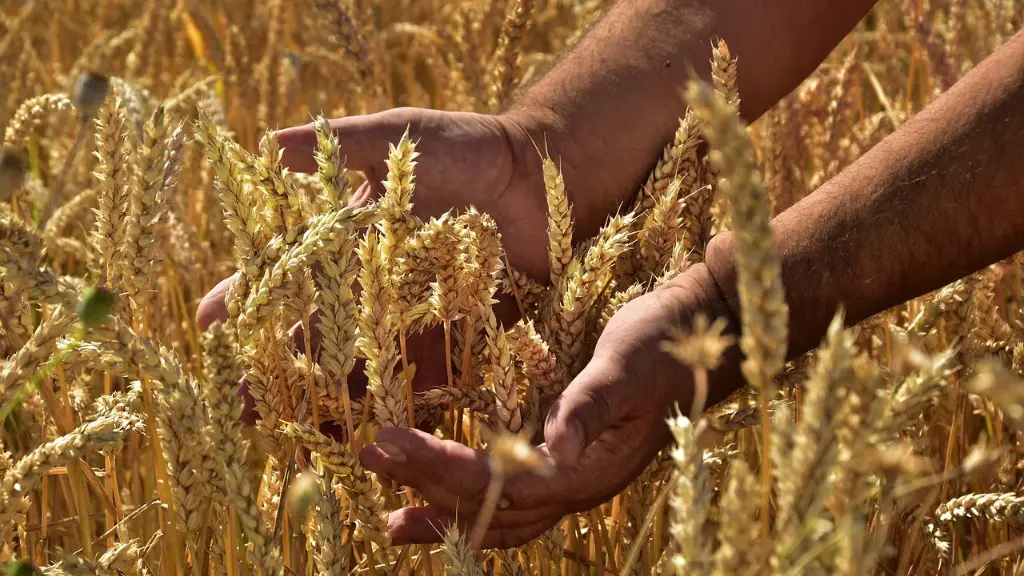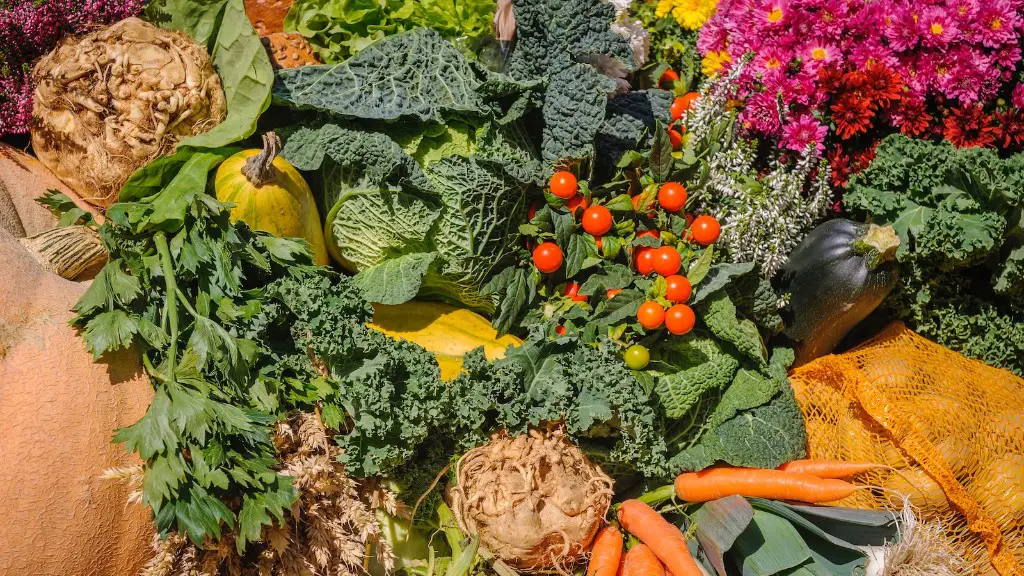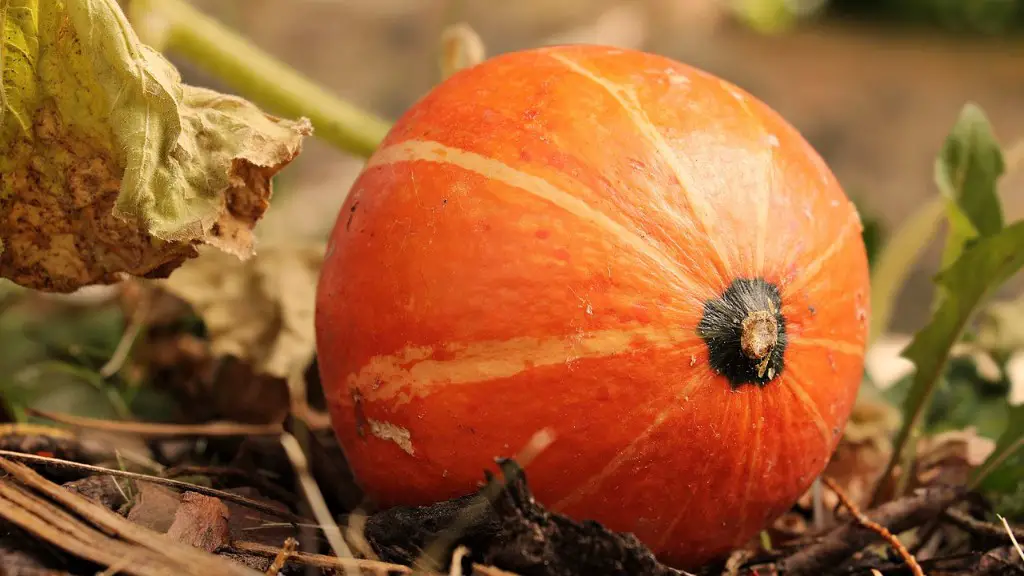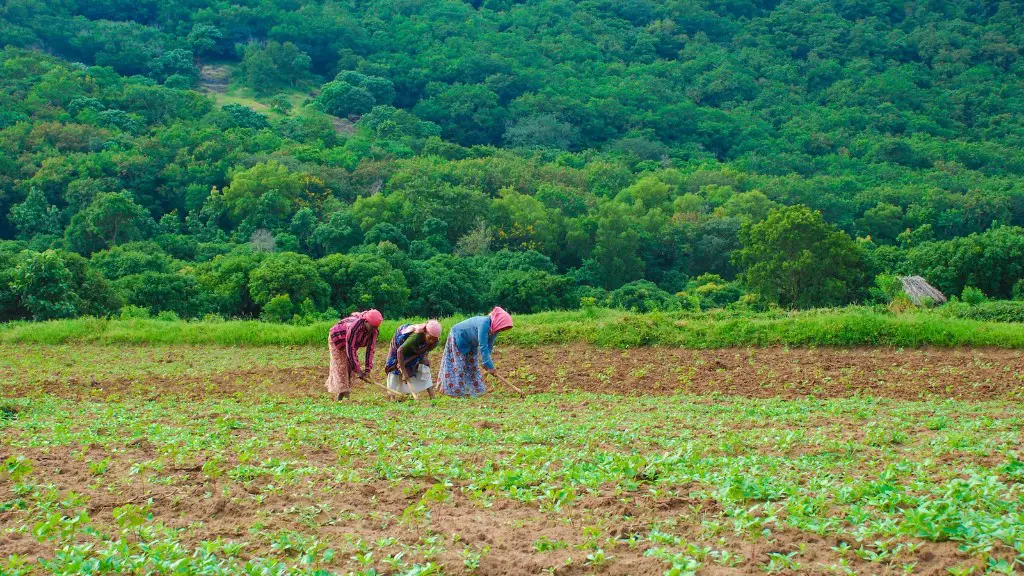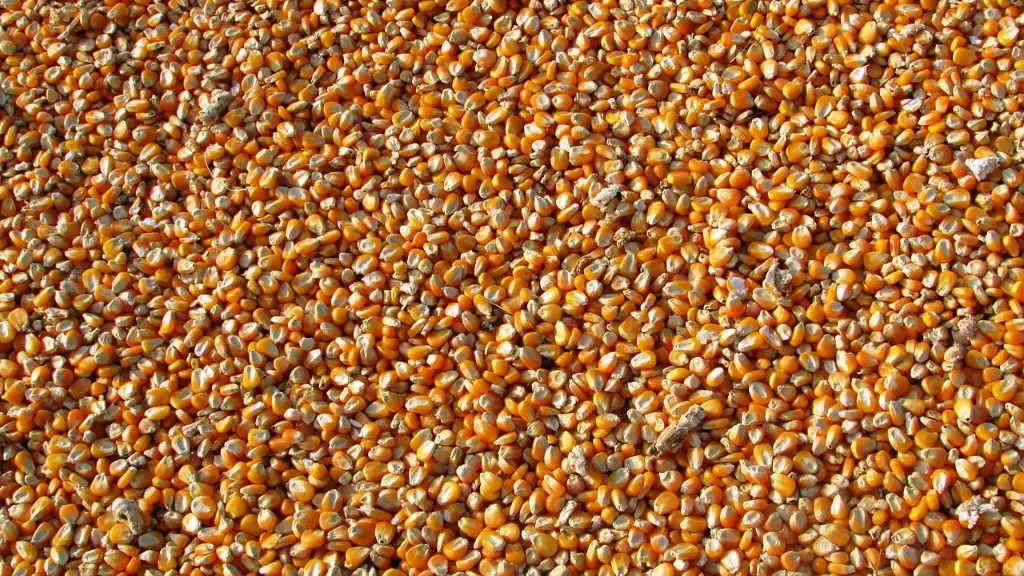Cows are an integral aspect of agriculture. They are used for a variety of purposes, such as producing milk and meat, hauling, and producing fertilizer. Cows are very hardy and versatile animals, making them the perfect animal for livestock farmers. They are cost-effective, have relatively low costs for upkeep and maintenance, and generate a high return on investment.
Furthermore, cows are an extremely useful bi-product and resource. Their manure can be converted into a valuable fertilizer, which can be used to increase crop yields. Additionally, cows also convert greenhouse gases into energy, making them a beneficial part of the agricultural cycle. This contribution is incredibly important given the current climate crisis in the world.
Cows also provide a valuable source of nutrition. Along with their meat, they produce a variety of high-protein, high-fat products, such as milk, cheese and butter. This contributes to a healthier diet, which is essential for optimal human development and health. Additionally, many medicines, cosmetics and fabrics are made with cow products, further emphasizing their importance.
It is not just cows, but their properties and capabilities as a species that make them so important. Cows can survive on both small and large pieces of land, and have a long life span when properly looked after. This makes them an invaluable resource for farmers and those in the agricultural industry overall. Even if a cows yields relatively few resources, it still contributes to the overall economy, making them a valuable asset.
In conclusion, cows are an invaluable asset for those in the agricultural industry. Their hardiness, versatility, and ability to convert greenhouse gases into energy and produce nutritional products, are just a few of the many benefits they bring to farming and to the world. Additionally, their ability to survive on both small and large pieces of land, and their overall long life span, make them essential to the agricultural cycle.
Manure Products
Cows are known for leaving behind large amounts of manure, but this is actually a great resource. Manure can be collected and used as a natural fertilizer, making it a highly sought after and valuable product. This manure can be used to increase crop yields, improve soil fertility, and generally help farmers get more bang for their buck. In some cases, manure can even be sold for a profit, further increasing the usefulness of cows.
Manure is not just useful for agricultural purposes, however. It can also be used to make paper, fuel, and even fertilizer for other industries. By turning this waste product into something useful, cows are providing a massive boon for multiple sectors. This is an undeniable reason why cows are so important to agriculture.
In addition to Manure, cows also provide a variety of liquid-based by-products such as milk, cream, and cheese. These products are incredibly important to both the daily lives of people and the agricultural industry, making cows a valuable asset to any farmer.
Not only this, but when a cow’s manure is broken down it generates methane, a greenhouse gas that is far more potent than carbon dioxide. However, this methane can be converted into energy, which can then be used to power vehicles, factories, and even homes. By turning this unwanted gas into something useful, cows are making a huge contribution to both the agricultural and energy cycles.
Overall, cows are an integral part of the agricultural cycle. They provide a cost-effective resource that produces a high return on investment and have an extremely long life span. Additionally, their waste products can be used as a fertilizer and their methane can be converted into energy, making them an invaluable asset for any farmer.
Social interaction
Not only are cows vital to agriculture, they also offer immense social benefits. In many countries, cows are seen as a source of food, reliable income, and emotional support. Studies have also shown that cow milk is more nutritious than other milk sources, making them an essential food source for many people.
Further, having cows around can also have therapeutic effects. Studies have found that spending time around cows can lead to improved psychological outcomes and overall health. The bond between cows and the people who look after them is very strong and can provide emotional support during difficult times. As such, cows can not only provide tangible benefits, but emotional benefits as well.
Cows are also an important part of many cultures throughout the world. In countries like India, cows have a historical and cultural significance, and many families keep cows as a sign of wealth. In this way, cows become more than just a farming asset – they are a way to show social standing and help people differentiate between socioeconomic classes.
Lastly, the connection between human and cow goes beyond mere economics. Over millennia, the bond between human and cow has developed into a deep spiritual connection. For example, many Hindu deities are associated with cows, and many people see cows as holy, sacred animals. This connection is just another reminder of how important cows are to people.
Strategic benefits
Cows are also a great resource for strategic planning. Many farmers use cows as a way to create long-term financial security for their farms. In most cases, the sale of cows and their products can provide a steady income, regardless of market conditions. This is particularly useful for small farms, as it allows them to stay afloat, even during difficult times.
Cows can also help diversify farms and yield more income. For instance, someone can raise both meat and dairy cows, allowing them to harvest and sell multiple products. This provides a lot of flexibility for farmers and helps them attract more customers and make more money.
Additionally, cows can also be used as a form of collateral, allowing farmers to borrow money if they need it. Banks often accept cows as collateral, making them incredibly valuable and important assets. In this way, cows can be used as a form of security, opening the door to new forms of financing and economic stability.
Finally, cows can also be used to improve the economy of rural communities. By helping local farmers, cows can provide jobs and much needed income to rural areas. This can help revitalize entire communities, ultimately making them stronger and more prosperous.
Environmental benefits
Cows are not just helpful for agricultural and economic purposes – they can also help the environment. Cows can help reduce the amount of greenhouse gases in the atmosphere, improving air quality and overall health. Many cows consume grass, which does not release as many greenhouse gases when digested, making them a useful tool for reducing emissions.
Cows can also help reduce water pollution by providing fertilizer. Manure from cows is a natural fertilizer, much of which can be reused or recycled. This means that fewer harsh chemicals are needed, reducing the amount of pollutants going into the environment.
Additionally, cows can also help restore degrading soil and increase plant biodiversity. Cows can graze certain areas, which can help to restore land that has been over-cultivated. This allows plants to regrow, restoring the ecosystem and increasing biodiversity. In this way, cows can help protect and rebuild entire communities.
Overall, cows are an essential part of the agricultural cycle. They are friendly and hardworking animals that can provide both economic and environmental benefits. From contributing to soil fertility to reducing greenhouse gases, cows are an invaluable asset to any farmer.
Trade and economics
Cows are also a valuable commodity in the global marketplace. Cows provide a valuable source of both food and other products, like leather, which can be exported to other countries. This opens the door to new trading opportunities, providing farmers with a much broader customer base and more potential income.
Cows also provide a stable source of income for those in the agricultural sector. Dairy, meat, and leather products can all yield a steady stream of income, providing farmers with a reliable source of income. This, in turn, can help local economies and communities, providing prosperity to those who need it most.
Furthermore, cows can also be used to manage risk in a portfolio. By investing in cows, investors can balance their portfolio and reduce their overall risk. This allows investors to limit their losses, protect their investments, and overall help them build long-term financial success.
Ultimately, cows are an important commodity in the global economy. From providing valuable trade opportunities to reducing risk, cows can help create financial stability and economic prosperity.
